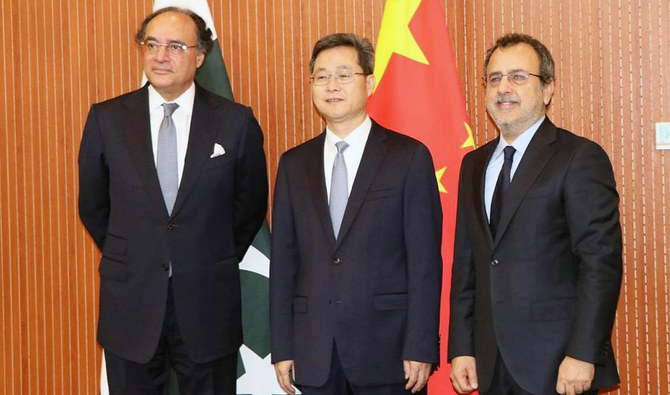ISLAMABAD: Pakistan’s Finance Minister Muhammad Aurangzeb on Thursday arrived in Beijing to open talks on power sector structural reforms suggested by the International Monetary Fund (IMF), two government sources said.
He held a meeting with his Chinese counterpart in Beijing, they said, and added that the finance minister together with Power Minister Awais Leghari is leading a delegation, which will take up several proposals with the Chinese side, including reprofiling of nearly $15 billion energy sector debt.
The countries, which share a border, have been longtime allies.
Rollovers or disbursements on loans from China have helped Pakistan meet its external financing needs in the past.
Pakistan’s finance ministry, junior Finance Minister Ali Pervaiz Malik, and the Chinese finance ministry didn’t respond to a request for a comment.
Both the finance and power ministers told Reuters in interviews last week that they will be discussing the power sector reforms in their Beijing visit, though they did not specify the timing.
China has set up over $20 billion worth of planned energy projects in Pakistan.
The reforms has been suggested by the International Monetary Fund (IMF), which this month agreed on a $7 billion bailout for the heavily indebted South Asian economy.
Pakistan’s power sector has been plagued by high rates of power theft and distribution losses, resulting in accumulating debt across the production chain — a concern raised by the IMF.
The government is implementing structural reforms to reduce “circular debt” — public liabilities that build up in the power sector due to subsidies and unpaid bills — by 100 billion Pakistani rupees ($360 million) a year, Leghari has said.
Poor and middle-class households have been affected by a previous IMF bailout reached last year, which included raising power tariffs as part of the funding program that ended in April.
















